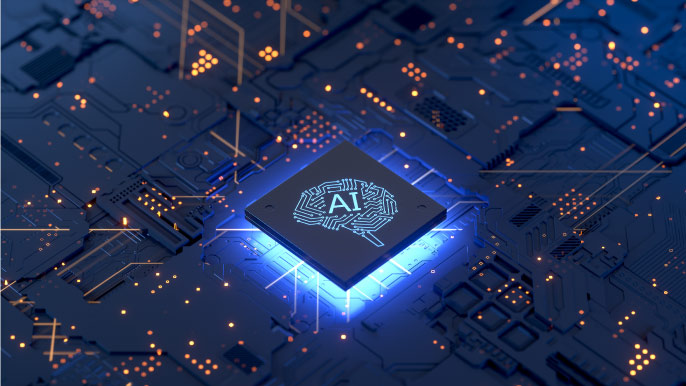Why Lawyers Must Embrace AI Legal Technology
June 20, 2024
Technology
Why Lawyers Must Embrace AI Legal Technology to Meet New Client Expectations
Recent surveys reveal that while both law firm leaders and corporate legal executives recognize the potential of AI and plan to increase their investments in this technology, there is a significant divergence in their perceptions of how AI will impact the law firm-client relationship. This disconnect underscores the urgent need for lawyers and law firms to embrace AI not merely as a technological novelty, but as a strategic imperative to meet evolving client expectations and remain competitive in the legal marketplace.
How AI Tools for Lawyers Are Redefining Client Expectations
The demand for law firms to adopt AI is increasingly driven by clients who recognize the technology's potential to transform legal services. Several factors influence this demand. First, corporate legal departments are under constant pressure to reduce costs and increase efficiency. AI tools offer a promising solution by automating routine tasks, streamlining workflows, and reducing the time and resources required for legal work. In a recent LexisNexis survey, 80% of corporate legal executives expressed their expectation for reduced outside counsel bills due to AI adoption. However, only 9% of law firm leaders were aware of this expectation, highlighting a significant gap in understanding between clients and their legal service providers.Moreover, AI empowers corporate legal departments to handle more work internally, potentially reducing their reliance on outside counsel for certain tasks. The LexisNexis survey found that 72% of corporate legal professionals predict more work will be done in-house due to AI, contrasting with 70% of law firm leaders who expect AI to enable new value-added work for clients. This discrepancy suggests that law firms may be overestimating the extent to which AI will generate new business opportunities, while underestimating how corporate legal teams, using AI technology and generative AI tools, can bring more complex legal tasks in-house.
Finally, corporate clients are not only open to the use of AI in their legal matters but are increasingly expecting it. The LexisNexis survey revealed that 68% of in-house counsel approve of outside counsel using AI tools for lawyers on their company's legal work. However, only 38% of law firm leaders believe their clients approve of AI use in their legal matters. This misalignment in perceptions further emphasizes the need for law firms to proactively communicate with clients about their AI capabilities and understand their clients' expectations regarding the use of these tools.
As these factors continue to shape client expectations, law firms that fail to adopt AI risk losing ground to competitors with more sophisticated legal technology, including alternative legal service providers and technology firms. To remain relevant and competitive, lawyers must embrace AI as a critical component of their service offerings and work closely with clients to understand and meet their evolving needs.
AI in Legal Advice & Practice: Consequences of Resistance and Benefits of Adoption
It’s clear from the LexisNexis survey that clients want their lawyers to incorporate AI into their work. Accordingly, law firms that resist adopting AI tools may risk falling behind their more technologically advanced peers and losing market share as a result.On the other hand, law firms that proactively embrace AI can expect to reap several benefits:
- AI tools can automate routine tasks, streamline workflows, and assist with deposition summaries, medical chronology, and contract analysis, enabling lawyers to work more efficiently and productively.
- AI tools can help ensure greater accuracy and consistency in legal work by reducing the potential for human error and providing objective, data-driven insights.
- By leveraging AI to deliver more efficient, cost-effective, and high-quality legal services, law firms can improve client satisfaction and foster long-term client relationships.
Legal AI is Not Limited to Open-Web Tools
There’s a common misconception among many lawyers that legal AI is limited to open-web tools like ChatGPT. However, it's crucial to understand that these general-purpose platforms, while impressive and useful in many respects, have significant limitations and risks when applied to legal work. The lack of specialized legal knowledge and training in these tools can lead to inaccurate or misleading information. We’ve all seen the horrifying headlines highlighting cases where lawyers were sanctioned for using non-existent case law in court filings. In fact, those headlines highlighting instances of AI “hallucinations” are likely a major contributor to many lawyers’ reticence to use AI.Fortunately, there’s an alternative. True “legal AI” (as opposed to general purpose, open-web generative AI) consists of purpose-built AI tools for the legal industry, these tools are designed and trained specifically for legal applications, incorporating domain-specific knowledge, context, and understanding of legal principles, precedents, and procedures.
Several legal tech companies have already developed AI tools tailored to the unique needs of the legal industry. For example, some platforms use AI to automate contract review and analysis, identifying key clauses, potential risks, and areas for negotiation. Others apply AI to e-discovery, helping lawyers quickly identify relevant documents and information in large datasets. Some tools even go as far as predicting legal outcomes based on case law and historical data.
At Lexitas, we are fully committed to building AI tools that help lawyers do their jobs better and faster as well. For example, Record Insights™ is an AI-assisted medical record analysis and summarization tool that can extract relevant medical information and create user-friendly reports in a matter of minutes. With Record InsightsTM, lawyers can easily search and filter medical records by various criteria, such as date, body system, or medical condition, enabling them to build stronger cases and better serve their clients. In addition, we recently launched Deposition Insights™, a transcript summarization and analysis tool unmatched by anything else in the industry. Deposition Insights™ is an exclusive offering that uses artificial intelligence to provide a deeper understanding of deposition testimony.
Legal Technology Solutions
At Lexitas, we are fully committed to building AI tools that help lawyers do their jobs better and faster.
For many law firms, particularly those without extensive internal AI development resources, the path to AI adoption may seem daunting. This is where partnering with specialized legal technology providers can be invaluable. These providers offer not just access to cutting-edge AI tools but also the expertise, support, and training necessary for successful implementation. By collaborating with legal technology providers, law firms can harness the power of AI without significant internal investments, ensuring a more seamless integration with existing workflows. Moreover, these partnerships provide law firms with the opportunity to develop the skills and knowledge necessary to thrive in an increasingly AI-driven legal landscape. As the legal industry continues to evolve, strategic partnerships between law firms and legal technology providers will play a crucial role in driving innovation, improving efficiency, and delivering better outcomes for clients.
Conclusion
The legal industry is at a critical juncture, where adopting AI is no longer a choice but a necessity. As client expectations evolve and the competitive landscape shifts, law firms must embrace AI to remain relevant and deliver the level of service that clients demand. However, the path to AI adoption is not always clear, particularly for firms without extensive internal resources or expertise.This is where strategic partnerships with innovative legal services providers like Lexitas become invaluable. By collaborating with these providers, law firms can access cutting-edge AI tools, expertise, and support, enabling them to harness the power of AI without significant internal investments. As legal technology continues to evolve, law firms that proactively embrace AI and forge strategic partnerships will be well-positioned to thrive in an increasingly technology-driven landscape, delivering superior results for their clients and solidifying their position as leaders in the field.
If you have any questions about integrating AI into your legal practice, would like to learn more about Record Insights® or Deposition Insights™, or require other assistance, please contact us.
Related Resources

WhitePapers
Technology
AI Technology and the Legal Industry
In this whitepaper we look at striking a balance between harnessing legal AI’s capabilities and navigating the regulatory landscape to fully leverage its benefits while upholding ethical and legal principles within the legal profession.
Read More
Articles
Technology
Artificial Intelligence - Complementary Tool or Competitive Threat for Legal Professionals?
The rise of artificial intelligence (AI) within the legal sector presents both challenges and opportunities. As AI technologies become more prevalent, concerns about job security and the future role of legal professionals have surfaced.
Read More
Articles
Legal Talent Outsourcing
Revolutionizing Commercial Contract Management: The Crucial Role of Humans in AI-Driven Solutions
The successful integration of AI into contract management hinges on human expertise and AI capabilities.
Read More